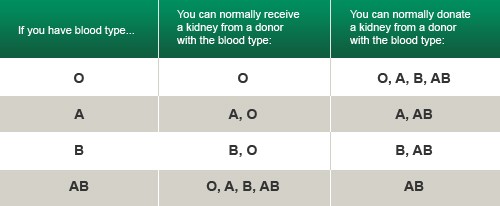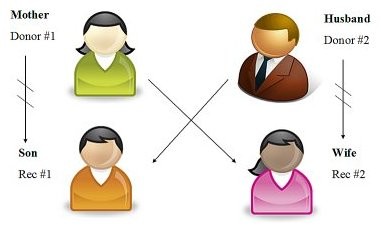Living Organ Donation
In the United States today, there are more than 101,000 people waiting for kidney transplant. Many of these people will wait for years to receive a kidney, and some will die before transplant can occur. For those with renal failure, living donation offers faster access to transplant. In addition, kidney donation from a living donor provides multiple benefits—kidneys function immediately, generally last longer, and have a reduced risk of rejection.
Types of donors
- Related: Parents, siblings, adult children, cousins, etc.
- Non-related: Spouses, partners, friends, co-workers, neighbors, etc.
- Altruistic: Some people choose to donate a kidney anonymously to someone they do not know personally. These donors are considered non-directed donors.
Interested in being a living kidney donor?
Please answer all questions truthfully, accurately, and completely, as the information you provide here will be used by our Transplant Team to detect any medical conditions that may affect your ability to donate a kidney. This questionnaire is considered extremely confidential. Only health professionals on the Transplant Team will use this information. This information will not be shared with the recipient or others. It is confidential. This survey will take approximately 15-20 minutes to complete. You must complete the survey in a single session, and we recommend you use a desktop or laptop computer for best results.
Eligibility
To be a kidney donor you must be over age 18 and in generally good health, physically and mentally. In order to donate directly to your intended recipient, you need to be blood type compatible. If you are not blood type compatible kidney paired donation may be an option. All potential donors are thoroughly evaluated medically and psychosocially prior to donation to ensure their safety and well-being.
Blood Type Compatibility Chart

Source: KidneyLink
Paired donation
Sometimes donors cannot donate directly to their intended recipient because of blood type or immunological incompatibility. In this situation, an incompatible donor/recipient pair may choose to participate in a paired donation. The incompatible pair will be matched with a donor/recipient pair in the same situation. The donor of the first pair donates to the recipient of the second pair, in exchange for the donor of the second pair donating to the recipient of the first pair.

Source: National Kidney Registry
Procedure and recovery
We have been performing living donor transplants at Virginia Mason Franciscan Health for more than 25 years. At Virginia Mason Franciscan Health, our surgeons specialize in laparoscopic nephrectomies. Donors recover and heal more quickly after this procedure than after traditional open nephrectomies. Most donors stay in the hospital for 2-3 days after surgery, and are fully recovered from their surgery after 6 weeks.
Resources
For more information about kidney donation, please visit the links below:
Contact information
If you have any questions, or are interested in kidney donation, please contact our Transplant Center at 206-341-0925. All contact with us is kept confidential.
